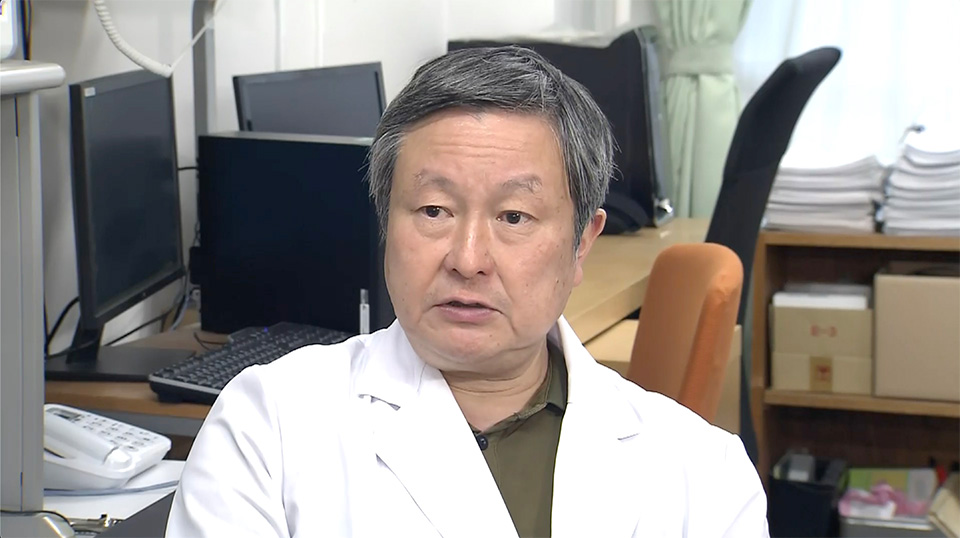STSS is caused mainly by the "group A streptococcus" bacterium and mostly affects people in their 30s or older. Patients can develop necrosis of the limbs and suffer multiple organ failure.
Japan's National Institute of Infectious Diseases says the preliminary number of cases in the country since the beginning of this year reached 977 as of June 2.
That's a 2.8-fold increase from the same period last year and already more than that year's total of 941 ― the highest figure ever registered with the current data-taking method.

Cause of infection difficult to determine
Tokyo Women's Medical University Professor Kikuchi Ken says STSS bacteria are often said to enter the body through a wound or a small cut, but in some cases the cause of infection cannot be pinpointed. He notes there are instances in which symptoms develop rapidly after getting bruised. Such symptoms include swelling of body parts and high fever.

Kikuchi says the surge in patients is alarming as it indicates something new is happening.
He urges people to call an ambulance immediately if swelling spreads rapidly, or if they feel drowsy, as these symptoms require urgent medical attention.
'I could have died if I had stayed home'
Tabata Toshinaru, in his 40s, was one of the patients who was diagnosed with STSS.
Last November, he developed fever and fatigue after finishing work as a beautician. The following day, he experienced swelling and pain in his right shoulder. He visited several medical institutions but they were unable to figure out the cause.
On the third day, his kidney function started deteriorating.
"I began to experience nausea as well and stopped urinating. I thought I might die when the swelling spread and the pain got worse," he recalls.
On the fourth day, he visited a university hospital and was diagnosed with STSS. The infected tissue was necrotic. He underwent an operation immediately.
"I could have died if I had stayed home to wait and see how things went."
Tabata says he asked his doctors the cause of the infection but they said they were not able to determine it as there was no apparent injury.
'Pandemic weakened immune systems'
Although the reason for the rapid rise of STSS cases in Japan is unclear, Professor Kikuchi says it may have to do with people's weakened immune systems.
"We can boost immunity if we are constantly exposed to bacteria. But that mechanism was absent during the coronavirus pandemic," Kikuchi says. "So, more people are now susceptible to infection, and that may be one reason for the sharp rise in cases."
